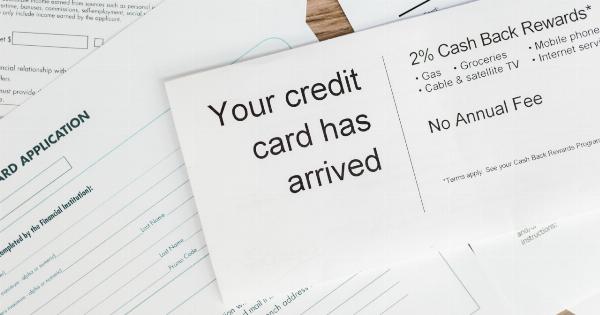As a devoted pet owner, you want nothing but the best for your furry friends. And when it comes to their nutrition, making your own pet food can have numerous advantages.
In recent years, more and more pet owners have started preparing homemade meals for their pets, realizing the benefits that come with it. From health benefits to cost savings and customization options, here are some compelling reasons why making your own pet food is worth considering.
1. Health Benefits
One of the most significant advantages of making your own pet food is the assurance of providing your pet with fresh and high-quality ingredients.
Commercial pet foods often contain artificial additives, preservatives, and low-quality ingredients that may not be the best choice for your pet’s health. When you prepare homemade meals, you have complete control over what goes into your pet’s food, ensuring that they receive a well-balanced and nutritious diet.
Proper nutrition plays a vital role in the overall health and well-being of your pet. By customizing their meals, you can cater to their specific dietary needs, allergies, or sensitivities.
For example, if your pet has food allergies, you can avoid those specific ingredients and choose alternative options that are suitable for their condition. This level of control allows you to address any health concerns and potentially improve their overall quality of life.
2. Cost Savings
While it may seem counterintuitive, making your own pet food can actually save you money in the long run.
While the initial investment may require some upfront costs, homemade pet food can be more affordable than premium commercial brands, especially if you have multiple pets.
Purchasing pet food from stores means you are not just paying for the ingredients, but also for the packaging, marketing, and distribution costs of the brand. When you prepare your own pet food, you eliminate these additional expenses.
By buying ingredients in bulk and utilizing cost-effective options, you can significantly reduce your pet food expenses without compromising the quality of their meals.
3. Customization Options
Another key benefit of making your own pet food is the ability to tailor it to your pet’s specific preferences and dietary needs. Just like humans, pets have unique tastes, and their preferences may change over time.
By preparing their food at home, you have the flexibility to experiment with different ingredients and flavors, ensuring that your pet thoroughly enjoys their meals.
If you have a picky eater, you can vary the recipe to find the perfect combination that tempts their taste buds.
Additionally, if your pet requires a specialized diet due to health issues or weight management, homemade food allows you to create a personalized meal plan that meets their specific requirements.
4. Avoiding Harmful Additives
Many commercial pet food brands add artificial additives, colors, and preservatives to enhance the appearance, taste, and shelf life of their products.
While these additives may be visually appealing and extend the product’s shelf life, they may not be the healthiest choice for your pet.
By making your own pet food, you can avoid these potentially harmful additives entirely. You can choose wholesome ingredients that are free from artificial flavors, colors, or preservatives.
This can significantly reduce the risk of your pet developing allergies or sensitivities associated with these additives and ensure that their food is as natural and healthy as possible.
5. Bonding with Your Pet
The process of making your own pet food can be a fantastic bonding experience for both you and your furry friend.
While cooking their meals, you can involve your pet by allowing them to observe or even participate in the process (such as licking the spoon!). This can help strengthen the bond between you and your pet, reinforcing the trust and love you share.
Moreover, this shared experience can also be a great opportunity to spend quality time together in the kitchen.
Your pet will appreciate the time and effort you put into their meals, and the joy on their face when enjoying a homemade treat is truly priceless.
6. Ensuring Food Safety
When recalls occur in the pet food industry due to contamination or other quality issues, it can be concerning for pet owners.
By making your own pet food, you have direct control over the sourcing and handling of ingredients, reducing the risk of contamination.
You can choose to purchase organic and locally-sourced ingredients, ensuring that the food you provide to your pet is safe and of the highest quality.
Additionally, you can use proper food storage techniques and hygienic practices to minimize any potential risks, providing you with peace of mind about the safety of your pet’s meals.
7. Addressing Special Dietary Needs
Some pets have specific dietary needs that may require a specialized diet. Whether it’s due to allergies, sensitivities, or medical conditions, preparing homemade pet food allows you to meet these requirements effectively.
Veterinarians often recommend specific diets for pets with various health issues. By making your own pet food, you can accommodate these recommendations and ensure that your pet receives the necessary nutrients to support their overall well-being.
This level of control is especially beneficial for pets with chronic conditions or those recovering from surgeries or illnesses.
8. Increasing Food Variety
Feeding your pet the same commercial pet food day after day can become monotonous for them. Just like humans, pets can appreciate a varied diet that offers a range of flavors, textures, and nutrients.
By making your own pet food, you can introduce a wide variety of ingredients into their meals. You can rotate proteins, vegetables, and grains, giving your pet a diverse and exciting eating experience.
This variety can enhance their appetite, reduce the risk of developing food aversions, and also keep mealtime interesting and enjoyable for your beloved companion.
9. Relieving Digestive Issues
Some pets may experience digestive issues, such as diarrhea, constipation, or gastritis, which can be linked to their diet.
By preparing homemade pet food, you have the opportunity to select easily digestible ingredients and develop recipes that help alleviate these issues.
Furthermore, the absence of artificial additives and low-quality fillers commonly found in commercial pet foods can contribute to better digestion and absorption of nutrients.
A homemade diet focused on whole, natural ingredients can promote a healthier digestive system for your pet, reducing discomfort and improving their gastrointestinal health.
10. Contributing to Environmental Sustainability
Lastly, by making your own pet food, you can actively contribute to environmental sustainability.
Commercial pet food production often involves practices that have a significant carbon footprint, including transportation, packaging waste, and energy consumption.
When you choose to prepare homemade pet food, you can opt for locally-sourced, sustainable ingredients. Additionally, by minimizing the use of single-use packaging, you can reduce waste and lower your ecological impact.
These small changes collectively make a positive difference in preserving our planet for future generations.
In conclusion, the advantages of making your own pet food are manifold.
From improved health benefits, cost savings, and the ability to customize meals, to avoiding harmful additives, bonding with your pet, and addressing specific dietary needs, homemade pet food offers an array of benefits for both you and your furry companion. Consider taking the leap into homemade pet food preparation and enjoy the rewards it brings!.






























